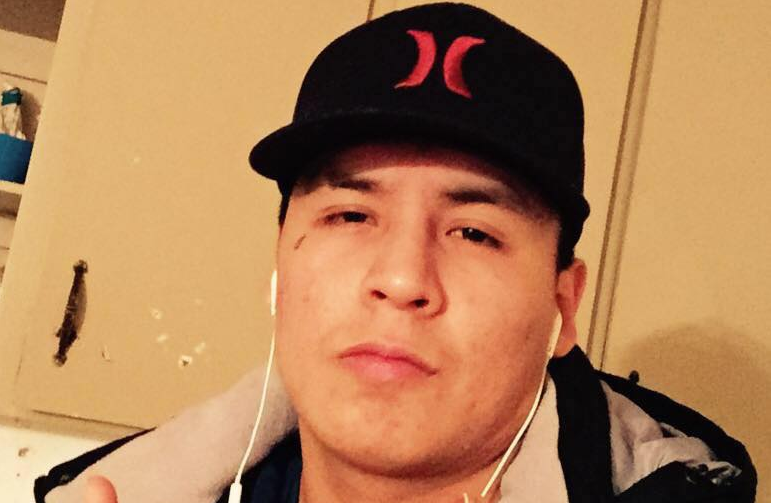THUNDER BAY - A judge has ruled that the evidence shows beyond a reasonable doubt that not only did Jonathan Yellowhead assault 17-year-old Braiden Jacob but that those actions also resulted in his death in December 2018.
Yellowhead, of Eabametoong First Nation, appeared before Justice Bonnie Warkentin in a Thunder Bay Courtroom on Friday where she found him guilty of manslaughter in the death of Jacob.
“I find it was Mr. Yellowhead who caused the blunt force trauma and the blunt force injuries were a contributing cause to Mr. Jacob’s death,” Justice Warkentin said.
The verdict comes after a seven-day trial that opened on April 4, 2022 during which Crown attorney Heather Braken called 14 witnesses to testify and shared video surveillance evidence.
The court heard that on the evening of Dec. 5, 2018, Jacob and Yellowhead were consuming alcohol with several other individuals in an Arthur Street hotel room. Everyone was evicted from the hotel after a window was broken and Jacob and Yellowhead were recorded on video surveillance leaving together.
Witnesses who were also at the hotel testified to seeing Yellowhead and Jacob walking toward Limbrick Street and they were seen on video surveillance footage in the area at approximately 1:40 a.m. before leaving.
Yellowhead was then recorded returning to the area alone at approximately 4 a.m. where he stayed at a residence and left the next day.
Jacob, originally from Webequie First Nation, was in the city seeking counselling services and he was reported missing on Dec. 6.
Investigators with the Thunder Bay Police Service testified that the missing person case was upgraded to a major case due to Jacob’s age and because he was not from the city.
Jacob’s body was found on Dec. 9 in the Chapples Park area by a passerby walking his dog. A forensic pathologist determined Jacob died as a result of hypothermia, blunt force trauma to the face and head, and alcohol intoxication.
Based on interviews with witnesses who reported seeing Jacob and Yellowhead walking toward the Limbrick Street area, police obtained the surveillance footage and also searched the residence in the area where Yellowhead stayed the night.
Bloodlike staining was observed on a doorframe in the residence, as well as on a backpack found inside matching one Yellowhead was seen carrying on the surveillance footage the night of Dec. 6 when entering the residence but not when leaving the next day.
According to DNA analysis, the blood found on the doorframe and on the backpack was matched to a DNA profile belonging to Jacob.
Yellowhead, who returned to his home community of Eabametoong First Nation on Dec. 7, was later questioned by police. He was arrested on Dec. 14 and initially charged with second-degree murder in the death of Jacob.
During the trial, defense counsel Neil McCartney presented an alternative suspect theory that posited two other individuals could have been responsible for Jacob’s death. He also argued the investigation by the Thunder Bay Police Service was flawed because of ongoing pressure in the public relating to other sudden death investigations involving Indigenous youth at the time.
Justice Warkentin disagreed that the investigation by the Thunder Bay Police Service was inadequate and pointed out that they had investigated other persons of interest but found no evidence linking anyone else to Jacob’s death.
“The defense theories do not stand up to scrutiny,” she said. “The Thunder Bay Police Service at the outset believed there may have been more than one person involved in the disappearance and later the death of Mr. Jacob. The police followed up inquires by obtaining video surveillance footage.”
Two other persons of interest were recorded on video surveillance entering a hotel room on Kingsway Avenue the night of Dec. 6, 2018 and not leaving at any time that night.
Justice Warkentin also said it was completely reasonable that Jacob was killed on Dec. 6 and that his body was not found until Dec. 9 because it was in a secluded area of Chapples Park partially hidden on the other side of a hill.
“I find the evidence of an alternative suspect is speculative and not reasonable on the evidence before me,” she said. “Nor do I find the police failed to adequately investigate the possibility of alternate suspects. The opposite is true.”
While Justice Warkentin said the evidence presented by the Crown was largely circumstantial, it excluded any other reasonable alternative to Yellowhead being the one who assaulted Jacob, citing Jacob’s blood being found at the Limbrick Street residence as evidence that Yellowhead was involved in the assault.
“The only reasonable theory is that Mr. Yellowhead had Mr. Jacob’s blood on his person and his backpack as a result of assaulting Mr. Jacob in his head and face,” she said. “Mr. Yellowhead then transferred this blood to the doorframe. It is also a reasonable conclusion that Mr. Jacob’s blood was deposited onto Mr. Yellowhead’s backpack during the assault.”
In her ruling, Justice Warkentin also said she had to determine if the injuries sustained by Jacob ultimately resulted in his death.
During the trial, McCartney argued Jacob could have been rendered unconscious due to alcohol consumption and therefore was not able to seek shelter from the cold.
While Justice Warkentin said it is impossible to know how Jacob became unconscious, Yellowhead’s action still carry culpability for his death.
“Defense argued the assault on Mr. Jacob was not a substantial cause of his death and Mr. Yellowhead should not be found guilty of manslaughter,” Justice Warkentin said. “I disagree. While it is impossible to know if Mr. Jacob was rendered unconscious from the assault, I find Mr. Yellwohead had an objective foreseeability of the risk of bodily harm to Mr. Jacob in the context of a violent assault.”
The matter will return to court on Sept. 28, 2022 to set a date for sentencing submissions.
